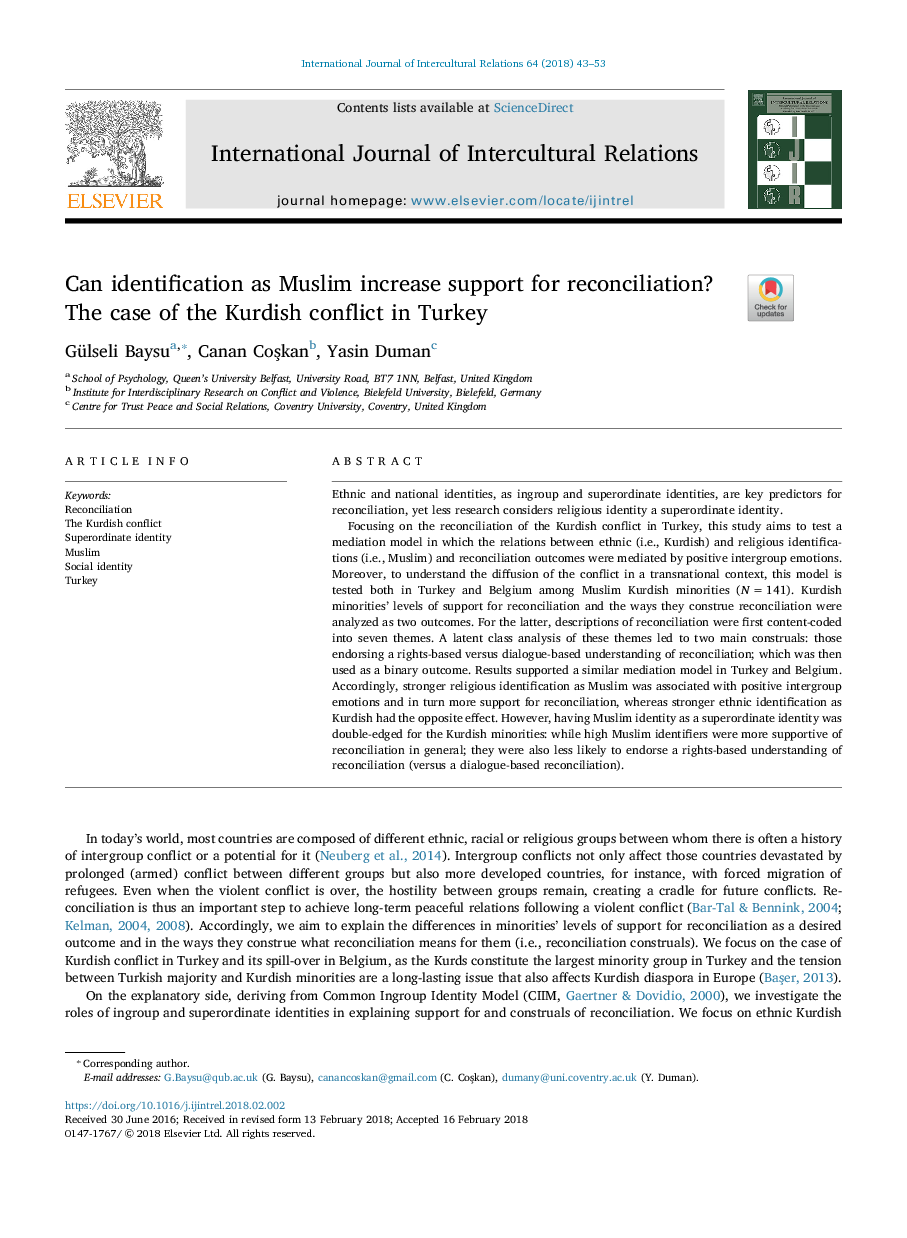ترجمه فارسی عنوان مقاله
آیا شناسایی به عنوان مسلمان افزایش حمایت از مصالحه؟ مورد درگیری های کردی در ترکیه
عنوان انگلیسی
Can identification as Muslim increase support for reconciliation? The case of the Kurdish conflict in Turkey
| کد مقاله | سال انتشار | تعداد صفحات مقاله انگلیسی |
|---|---|---|
| 133605 | 2018 | 11 صفحه PDF |
منبع

Publisher : Elsevier - Science Direct (الزویر - ساینس دایرکت)
Journal : International Journal of Intercultural Relations, Volume 64, May 2018, Pages 43-53
ترجمه کلمات کلیدی
اصلاح، درگیری کردی، هویت فوق العاده ای مسلمان، هویت اجتماعی، بوقلمون،
کلمات کلیدی انگلیسی
Reconciliation; The Kurdish conflict; Superordinate identity; Muslim; Social identity; Turkey;

